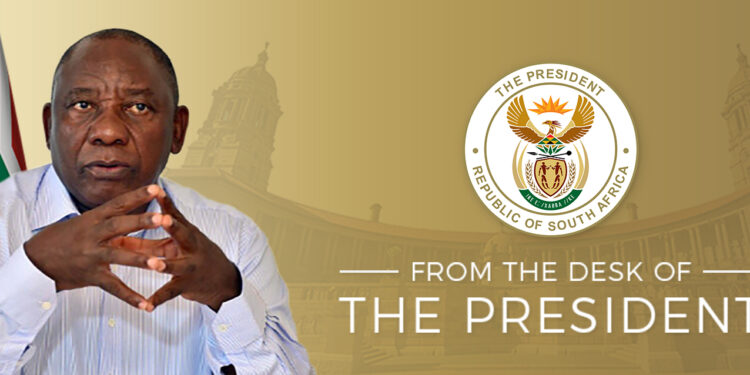PRETORIA, South Africa – In a heartfelt address on Monday, February 3, 2025, President Cyril Ramaphosa paid tribute to 14 South African soldiers killed in the eastern Democratic Republic of the Congo (DRC) during an M23 attack.
The attack, which violated a ceasefire agreement between the DRC and Rwanda, occurred in areas where South African soldiers were stationed as part of the Southern African Development Community Mission in the DRC (SAMIDRC) and the UN Organization Stabilization Mission in the DRC (MONUSCO). The UN Security Council strongly condemned the assault, which they noted could constitute a war crime.
The President, speaking on behalf of a nation in mourning, described the soldiers as “heroes,” saying they had laid down their lives in defense of the helpless civilians trapped in one of the world’s most enduring conflicts.
Since the violence began in 1996, the DRC has experienced one of the deadliest conflicts in the world, with over seven million people displaced internally. The ongoing crisis has been exacerbated by rampant human rights violations, including large-scale civilian attacks, abductions, mass rape, child soldier recruitment, and human trafficking.
South Africa’s involvement in peacekeeping efforts in the DRC dates back to 1999 when it first contributed troops to the MONUSCO mission. In 2023, the country further committed itself by contributing forces to SAMIDRC, which was deployed to assist with peacebuilding efforts in the eastern DRC. This reflects South Africa’s broader foreign policy focus, which has been rooted in supporting conflict resolution and peacebuilding across the African continent.
President Ramaphosa highlighted South Africa’s extensive history of peacekeeping across Africa, citing past involvement in missions in countries such as Burundi, Ethiopia, Eritrea, Liberia, Nepal, and Darfur. South Africa was also instrumental in brokering peace in Lesotho, Burundi, and South Sudan. Most recently, South Africa played a pivotal role in facilitating the 2022 ceasefire between the Ethiopian government and the Tigray People’s Liberation Front.
Last year, South African troops were part of the Southern African Development Community’s (SADC) successful intervention in Mozambique to counter extremist groups in the Cabo Delgado region. The Mozambican government has publicly praised SAMIM for its contributions, which have notably improved security in the region.
Despite South Africa’s commendable role in peacekeeping, some critics have questioned the nation’s presence in the eastern DRC, particularly after the loss of its soldiers. The President responded, stating that conflict and violence anywhere in Africa are the concerns of all African nations. The destabilizing effects of such conflicts spill across borders, undermining growth and development across the continent.
The President reaffirmed South Africa’s stance that peace in the DRC requires immediate action to end hostilities and ensure a ceasefire is respected by all parties. He emphasized that the SAMIDRC mission, which is set to wind down upon the successful implementation of confidence-building measures, is not open-ended. He assured that the safety of South African soldiers remains a priority, with ongoing efforts to ensure they are well-equipped and supported during the mission.
President Ramaphosa also stressed that the only path to lasting peace in the DRC is through diplomacy, a sentiment echoed by the UN Security Council, which has called for the M23 rebel group to reverse its territorial expansion and for all external forces to exit the DRC. South Africa stands firm in its endorsement of these calls, urging all parties to adhere to the Luanda Process and to fully embrace diplomatic efforts aimed at resolving the crisis.
Do you have a story in your community or an opinion to share with us: Email us at editorial@watchdoguganda.com













